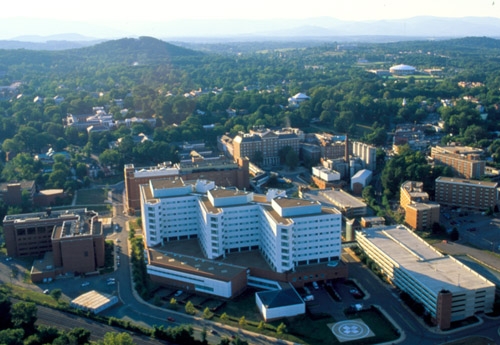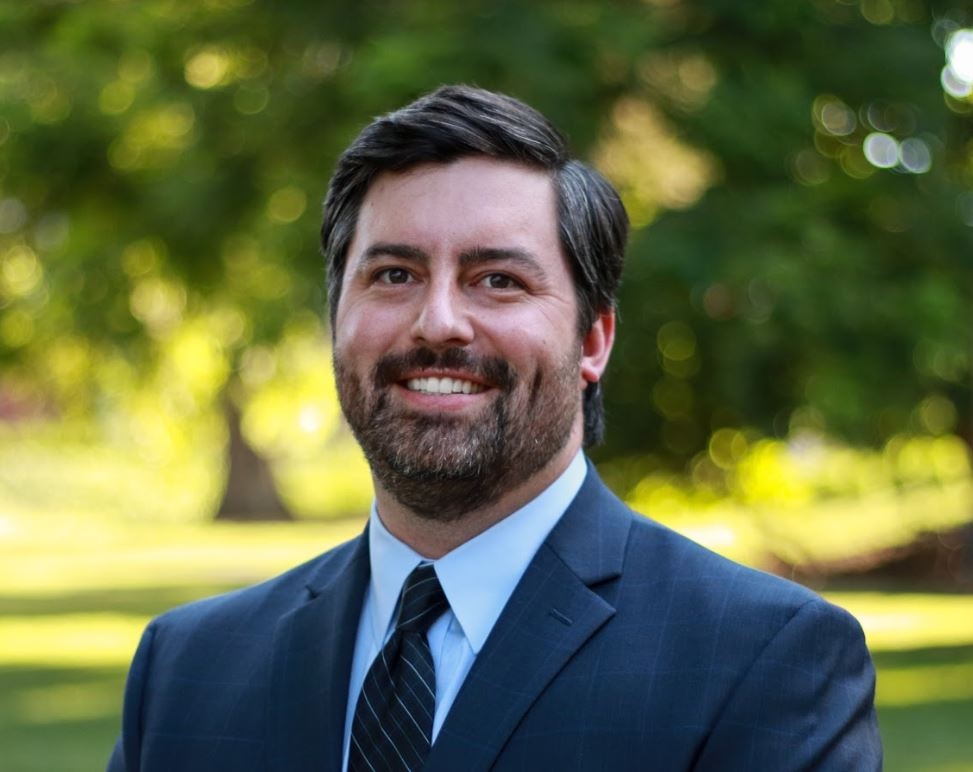XMNR students and alumni put the concept of climate resilience into practice
January 5, 2021

By Garrett Davidson
There is no question that this year has presented a unique set of challenges that affect each one of us in many different ways. How do we make an immediate shift to a virtual world in our professional and personal lives, and as students? Can we manage working from home while caring for our family, or with a partner also working remotely? Will we lose employment, and how will we find another job? These questions, and many more, have pushed us to make drastic lifestyle changes in an attempt to find a “new normal.” Yet, what has impressed me the most over the last eleven months is the resilience of my XMNR colleagues, the Virginia Tech Center for Leadership in Global Sustainability faculty and staff, and people all around the world as they adjust to these new ways of life. Resilience has become a recurring theme, not only in response to the COVID-19 pandemic, but also in the way that we tackle climate change and sustainable development.
Thinking beyond the climate tipping point
Climate scientists have determined that a two-degree-Celsius increase in the planet’s temperature will be the tipping point for protecting the planet’s natural ecosystems. However, we are already starting to feel the impacts of global warming in the form of sea level rise, extreme weather events, biodiversity loss, supply chain disruption, and more. While advances in mitigation are being made to protect natural resources, communities around the world have no choice but to begin taking adaptive measures to build resiliency to the effects of climate change.
As current or aspiring sustainability professionals, XMNR students evaluate strategies for climate mitigation and adaptation as we seek to build a future that protects both intragenerational and intergenerational equity. Through analysis of exposure risk, sensitivity risk, and adaptive capacity, we examine the vulnerability of systems like food resiliency, energy security, supply chains, and water in the United States and globally to determine how we can create a climate resilient world.
Planning resilient communities
XMNR alumni Ellen Graap Loth (’15) and Vestal Tutterow (’14), along with myself and two XMNR colleagues, Trisha Porter and Eric Torraca, are using what we’ve learned in the program to support the non-profit organization Resilient Virginia in their efforts toward accelerating resiliency planning in communities across Virginia. While serving as Vice Chair of Resilient Virginia, Ellen is a Senior Project Manager at the environmental engineering and consulting firm Cardno.

Vestal is a Program Manager specializing in energy management for Lawrence Berkeley National Laboratory and Treasurer for Resilient Virginia. “In my day job, I implement federal-level energy efficiency programs where it’s often difficult to measure their impact. So, following my graduation from the XMNR program, I found volunteering for a nonprofit, such as Resilient Virginia, a great way to foster resiliency and sustainability at the local community level,” says Vestal.

As members of the Board of Directors, Ellen and Vestal are involved with supporting the organization’s strategic plan that seeks to inform communities about climate-related and man-made challenges, educate key stakeholders, and activate them to engage in strategic plan development. When Ellen approached XMNR Program looking for intern support for various initiatives, Trisha, Eric, and I were eager to get involved. Annette Osso, Managing Director of Resilient Virginia, has welcomed the enthusiastic involvement of CLiGS students and alumni, stating, "These students bring the latest in sustainability and resiliency ideas, and help Virginians move forward on seeing the value of climate adaptation planning."
Along with the ample tools and resources available through Resilient Virginia’s educational services and website, Annette Osso and Director of Social Media and Events Tracy Garland organize the Resilient Virginia bi-annual conference and, most recently, the Fall 2020 Resiliency Academy Webinar Series to further their mission of promoting resiliency planning. The first installment of the Resiliency Academy series featured a demonstration of the U.S. Climate Resilience Toolkit by David Herring, Director of Communication & Education at the National Oceanic and Atmospheric Administration (NOAA) Climate Program Office. This toolkit is a comprehensive collection of resources designed to help community planners find and use tools to build climate resilient plans for their respective localities.
Practical approaches to overwhelming issues
The U.S. Climate Resilience Toolkit website provides an outline of resiliency-planning processes, and connects viewers to case studies from around the country. It also features the Climate Explorer, a climate modeling visualization tool. Building on this connection with NOAA, Resilient Virginia has partnered with the agency to provide case studies for publication on the Toolkit’s website as a reference source to communities looking for examples of existing resilience and adaptation plans. This is where the XMNR students come in, as we are leading the research efforts for a variety of cities in Virginia that have already implemented or are currently developing climate resiliency plans. Working closely with sustainability managers in Blacksburg, Virginia Beach, and communities in Central Virginia, we have gained a better understanding of how these officials are assessing climate threats by using tools like those found in the U.S. Climate Resilience Toolkit, and building the capacity to adapt to climate stressors specific to their location.

These three examples make up the first round of case studies to be added to the Toolkit’s website. Resilient Virginia plans to continue this case study program for cities around the Commonwealth that are developing resiliency plans and to track state-level resiliency planning initiatives. Officials at the federal, state, and local levels are aware, now more than ever, of the importance of having an established resilience and adaptation plan to protect the future. Organizations like Resilient Virginia and NOAA continue to do their part in supporting communities as they assess vulnerabilities and risks, develop plans, and take action. The clock is ticking and, as current and future sustainability professionals, MNR students and alumni play a pivotal role in how we mitigate the interconnected challenges facing the world and improve the adaptive capacity of the communities that we call home.

Calling all MNR students and alumni!
I encourage anyone with an interest in resiliency and adaptation to work with Resilient Virginia, or similar nonprofits, to help deepen the connection between what you learn in the MNR program and application of that knowledge to solve real-world problems. Resilient Virginia will be planning their Summer 2021 statewide conference as well as the Spring 2021 Resiliency Academy Webinar series. Contact Annette Osso, Managing Director, if you would like to be involved, or fill out a Volunteer Form on their website.

Garrett Davidson worked in financial services and consulting for nearly a decade before making a career pivot into sustainability. He graduated from James Madison University with a B.S. in Kinesiology, focusing on Sport and Recreation Management. It is also where he founded the JMU Outdoor Adventure Club to help promote outdoor recreation and environmental conservation. He is passionate about sustainability and conservation and hopes to build a career that promotes those efforts. He has recently begun his new career as a Development Manager with Sun Tribe Solar in Charlottesville, VA. In his free time, Garrett enjoys hobbies such as fishing, hiking, camping, and photography.


